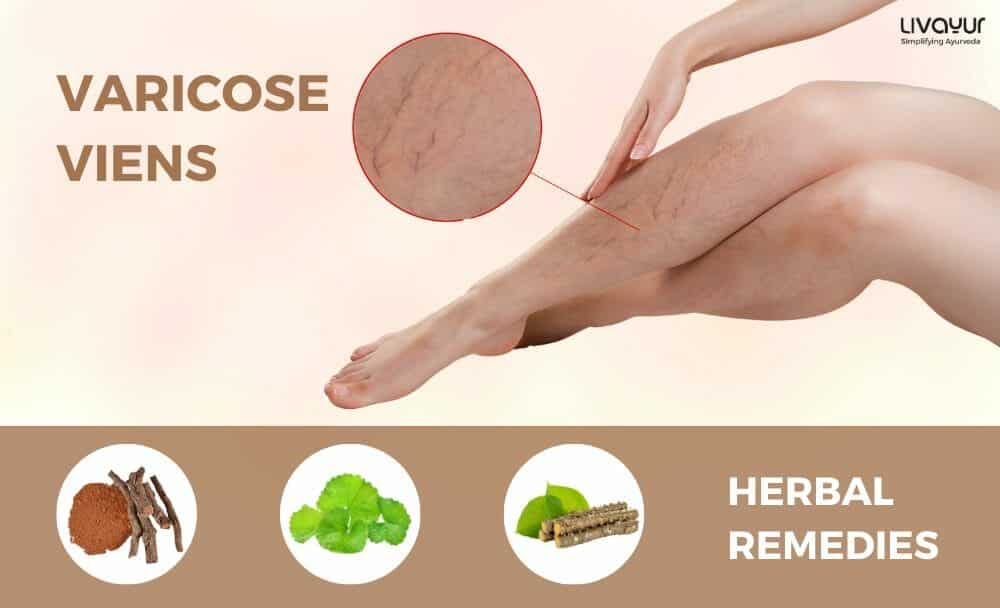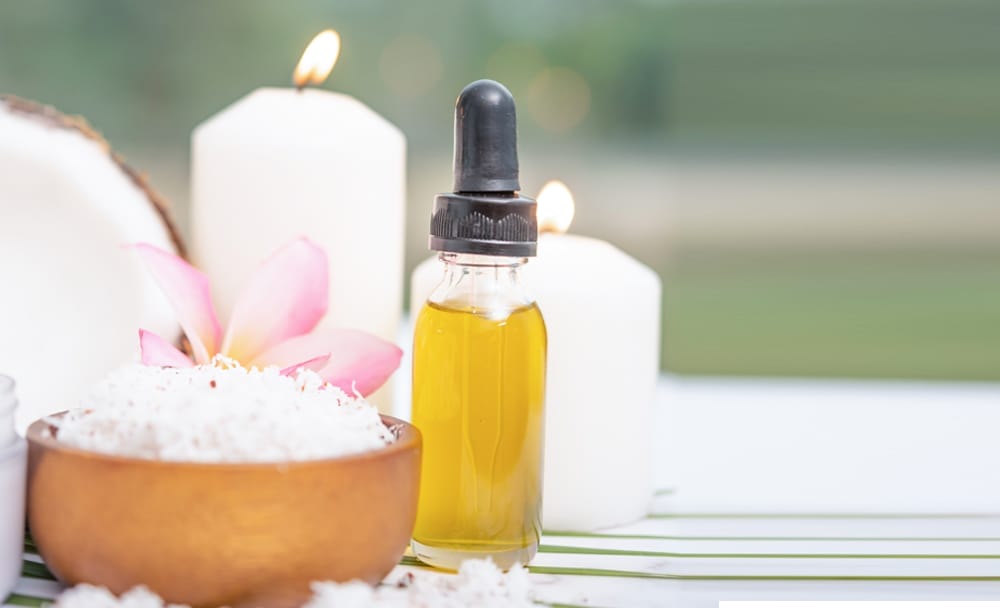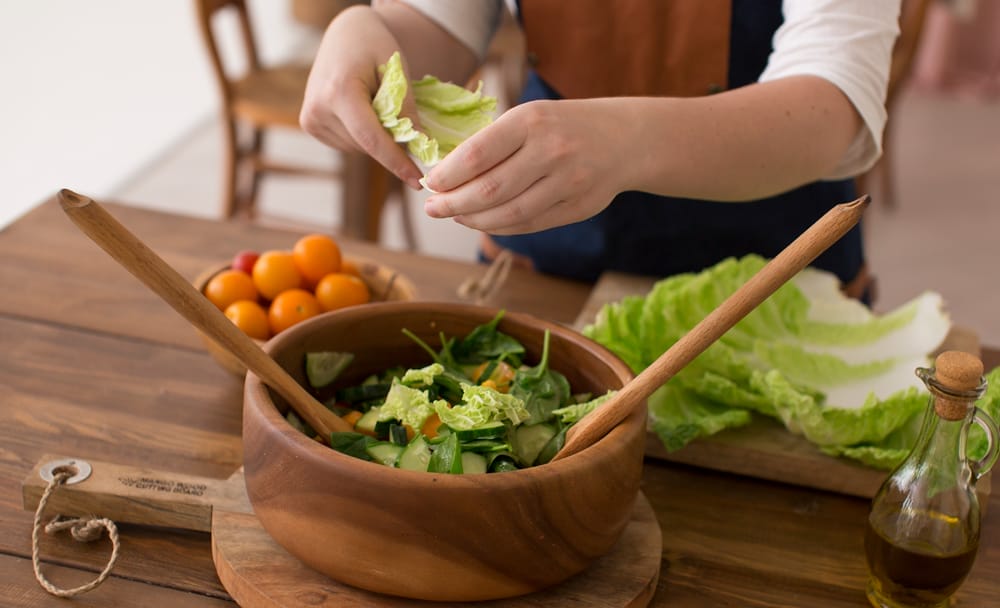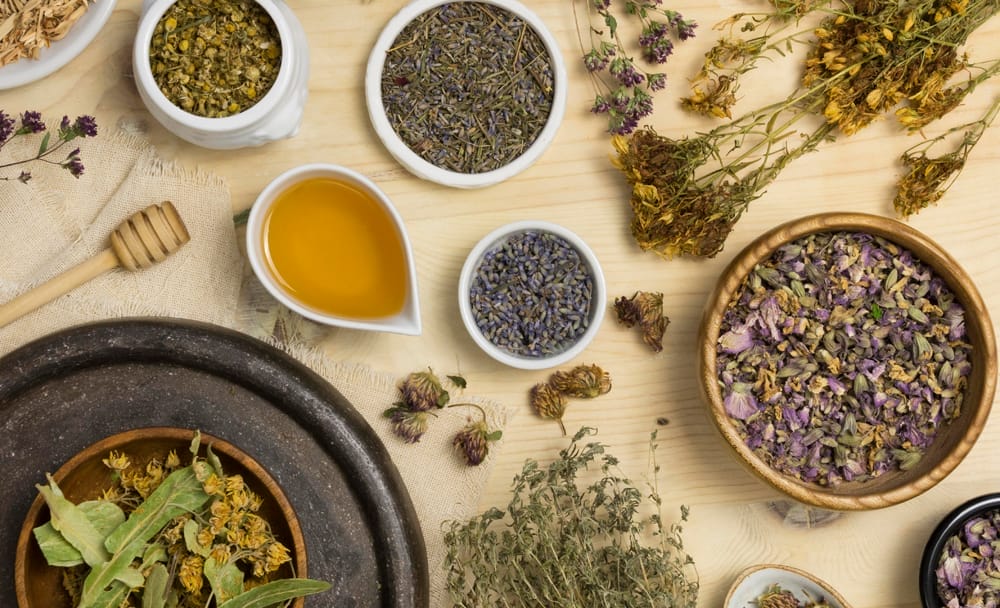Varicose veins are enlarged, swollen and twisted veins, usually occurring in the legs. They cause pain and discomfort and may also lead to many serious health disorders such as ulcers, blood clots and more. Ayurveda recognises many remedies and therapies that can be extremely effective in the treatment of varicose veins. According to Ayurveda, lifestyle and dietary modification is the key to the treatment of varicose veins.
How are Varicose Veins Formed?
While arteries carry blood from the heart to all the tissues in the body, veins are responsible for carrying blood back to the heart. Sometimes, the valves in these veins might get damaged, leading to a disrupted flow of the blood. The blood then starts collecting in the veins or flowing backwards causing the veins to twist and swell. According to Ayurveda, it is the imbalance in the Vata Dosha that leads to the development of varicose veins. Hence, the Ayurveda treatment of varicose veins primarily revolves around balancing Vata Dosha.
What Are the Symptoms of Varicose Veins?
- Pain and ache in the legs
- Burning, cramping or swelling in the muscles of your lower legs
- Discomfort and itching around specific veins in your legs
- Highly visible and misshapen veins in your legs
- Skin discolouration around certain veins
What Are the Risk Factors of Varicose Veins?
- Age increases the chances of developing this condition. Ageing may cause wear and tear of valves in the veins leading to varicose veins.
- Women are at a higher risk to suffer from varicose veins. Hormonal changes due to period, pregnancy and menopause may cause this condition.
- There is a higher risk of developing varicose veins during pregnancy. In pregnancy, more volumes of blood flow through your body which may enlarge the veins. Hormonal changes during pregnancy may also cause this condition.
- Having a family history of varicose veins may increase the risk of developing this condition.
- Being overweight is also a risk factor for varicose veins as excess weight puts more pressure on veins.
What are the Ayurveda Therapies that Can Treat Varicose Veins?
Abhyanga or Oil Massage Therapy
Abhyanga is a type of body massage that is performed with warm herbal oils. Since the root cause of varicose veins is the improper flow of blood, Abhyanga is extremely effective in the treatment as it boosts the blood flow in the body. Abhyanga is also known to bring the Doshas back to balance.
Raktamokshana Jaluka Charana or Leech Therapy
Leech therapy or Raktamokshana is a painless non-surgical treatment of varicose veins. Leeches are known to secrete blood-thinning compounds when attached to the skin, leading to a better flow of the blood. Their bite is painless and hence, it is one of the best treatments for varicose veins.
Basti or Enema Therapy
Basti is one of the Panchakarma therapies stated in Ayurveda. It is primarily known to treat the diseases caused due to Vata imbalance. In Basti, herbal oils or decoctions are administered rectally to treat varicose veins.
What Are the Dietary Modifications for Varicose Veins?
Since varicose veins are caused due to Vata imbalance, you must avoid foods that increase Vata Dosha. These foods are generally bitter, pungent or astringent in taste. Some of the examples of the food that you must avoid are eggplants, bitter melon, chillies, radishes, and sour fruits such as grapes, oranges, lemons, etc.
Include foods that have anti-inflammatory properties. Garlic and ginger are known to be the best anti-inflammatory foods that also help to balance Vata Dosha.
What are Some Herbs that Help in the Treatment of Varicose Veins?
There are many herbs mentioned in Ayurveda that help in the treatment of varicose veins. Some of these herbs are:
Guggulu
Guggulu is one of the best Ayurvedic herbs that strengthen the body tissues and aid in the healing of varicose veins. It also helps to relieve pain and inflammation caused due to varicose veins.
Ashwagandha
Ashwagandha is used for multiple purposes in Ayurveda. It is known to reduce inflammation as well as the levels of cortisol in the body, thereby helping in the treatment of varicose veins.
Brahmi
It is probably one of the best herbs to treat varicose veins. The antioxidants present in Brahmi along with its anti-inflammatory properties help to reduce the inflammation as well as heal the oxidative damage caused to the veins.
What are the Lifestyle Modifications Necessary to Treat Varicose Veins?
You must stay active and exercise regularly to prevent and fight varicose veins. Exercising helps in this condition by stimulating the blood flow in the body and by also balancing the hormonal changes.
There are also many Yoga Asanas that are extremely effective in the treatment of the condition such as mountain pose, standing forward pose, fish pose and boat pose. Therefore, to relieve the discomfort caused by varicose veins, you must try to include Yoga in your lifestyle.
Takeaway
Varicose veins is a serious condition that needs to be addressed well to avoid further complications. Ayurveda provides one of the best treatments for this condition. There are many therapies and herbal remedies available in Ayurveda for the treatment of this condition. However, you must remember that the key to the treatment of varicose veins is dietary and lifestyle modifications. Consult a professional Ayurvedic expert to help guide you through the right treatment for curing this condition.
This article is reviewed by Dr. Ashwini Konnur


















